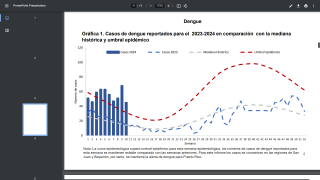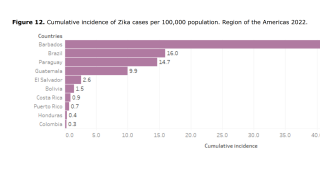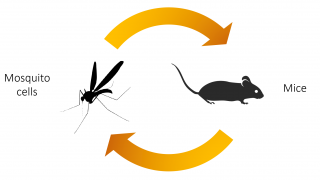Dengue Could Soon Infect 4 Billion People

Abbott recently announced the findings from a new survey among leading infectious disease experts. The experts say significant gaps remain in surveillance programs to identify emerging pathogens impacting human health.
For example, these experts identified mosquito-borne pathogens as representing the most significant threat (61%) to people, compared to avian (21%), animal (14%), or tick-born (4%) pathogens.
Mosquito-transmitted viruses, including Chikungunya, Dengue, Malaria, West Nile, and Zika, have already become common in many tropical areas of Africa, the Americas, and Asia in 2024, where billions of people live.
Published on September 17, 2024, this survey predicts that about 1.3 billion people could be affected by Zika virus by 2050 and 4.8 billion by Dengue by 2080.
Furthermore, these experts fear that a novel, highly transmissible pathogen without tests, treatments, or vaccines is the factor most likely to transform a local disease outbreak into a pandemic.
"Just as scientists have developed sophisticated monitoring systems to track emerging storms and hurricanes, our job as virus hunters is to identify pathogens that have the potential to spark outbreaks in order to stay one step ahead," said Gavin Cloherty, Ph.D., head of infectious disease research at Abbott and head of the Abbott Pandemic Defense Coalition, in a press release.
"Disease surveillance acts as our radar, helping us prioritize which viruses are most likely to trigger an outbreak and where those outbreaks may occur."
While vaccines for the Zika and West Nike viruses have not been approved in 2024, a second-generation Dengue vaccine has rapidly been accepted by about 40 countries.
Takeda's QDENGA® is an approved two-dose vaccine that prevents dengue fever and/or severe Dengue caused by any of the four serotypes of the dengue virus.
Compared to first-generation Dengue vaccines, QDENGA is administered without requiring a diagnostic test.
Moreover, recent studies have found QDENGA to be very effective against disease; the vaccine is about 82% protective three months after the first dose.
Additionally, with Chikungunya cases being confirmed throughout the Region of the Americas in 2024, Valneva SE's IXCHIQ® single-dose, live-attenuated vaccine has been U.S. FDA-approved to prevent infections.
Don Hackett, Vax-Before-Travel's publisher, says, 'These innovative vaccines substantially reduce disease burdens today and may prove this survey's experts wrong over the long term.'
In the U.S., travel vaccines are offered at various clinics and pharmacies and should be administered well before traveling abroad.
The Abbott Pandemic Defense Coalition survey asked more than 100 experts in virology, epidemiology, and infectious diseases around the world about their priorities for addressing the gaps in readiness for disease outbreaks, their views on how the changing environment is impacting infectious diseases, and their suggestions for building a resilient healthcare system capable of identifying and responding to emerging disease outbreaks around the world.
Our Trust Standards: Medical Advisory Committee
























